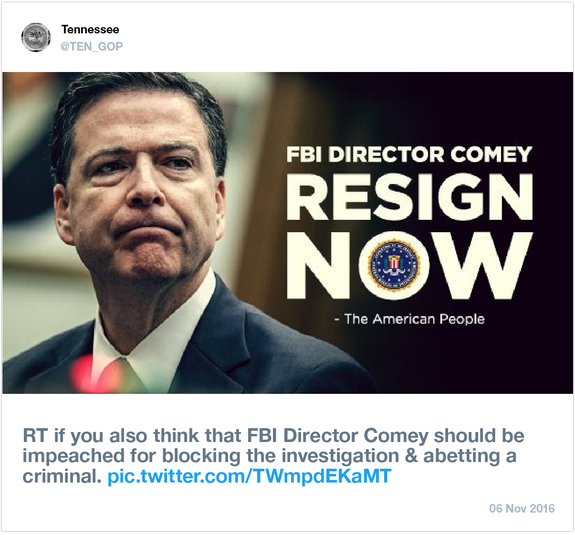Despite efforts of transparency, Twitter is still clouding Russian troll abuse

Twitter is finally following Facebook's lead and coming clean about how Russian trolls abused their platform in spreading misinformation ahead of the 2016 U.S. presidential election. But even in transparency, Twitter is still clouding the issue by literally deleting the evidence.
SEE ALSO: Americans say social media is destroying the news — but nobody knows what to do about it
In late January, the company published a blog post detailing some of its findings on accounts run by the Russian-linked Internet Research Agency (IRA) that was responsible for many (if not most) of the malicious bot behavior across the platform. Other efforts included reaching out to Twitter users who interacted with these accounts and sharing a few examples of such content.
But.
BUT.
According to a report from NBC News, Twitter has been treating these accounts just like they treat your typical, run-of-the-mill spam accounts: by suspending them and, thus, deleting their tweets from the public view.
And that's a big problem.
Twitter's cloudy judgment
While it's understandable in the case of the average spam bot, these Russian accounts are different and far more important to understanding how this political interference happened, especially because it's expected to happen again, likely in the lead-up to the November midterms.
Given that so many users interacted with these accounts (Twitter says they sent notices to 1.4 million users), it's also important for users to understand what these tweets look like and how they can discern real from fake.
That the fake @TEN_GOP account made headlines for being trolled by a user who baited Trump followers with a photo prank underscores how successful these bots can be. Beyond the Twitter-inception of a propaganda troll being trolled by a fake photo claim, that so many outlets promoted this account and many more like it in various stories (something even we were guilty of) shows how successful that 2016 operation was.

Image: Twitter
And we're slowly starting to see how far back these Russian efforts go, like the report of a Russian troll-led hoax in 2015 that prompted fears of the KKK at the University of Missouri following several incidents of racial tension at the school. This goes deeper than we expected and we're still finding out new tidbits all the time.
Deleted tweet database shows clarity
To that end, NBC News has done us a service — one that Twitter themselves should have done — by releasing a database of the accused Russian accounts (.csv file) and thousands of their tweets (.csv file) that have otherwise been erased from the web.
It's a valuable service that will give us the ability to see what was done before and, hopefully, help us learn what pitfalls to avoid in the future. It's just a damn shame, though not a surprise, that it's not Twitter that's sharing this resource.
Anyone that's ever had to email Twitter about some sort of controversy related to specific accounts or tweets is familiar with the standard "we do not comment on specific accounts" reply. Which is why the company has faced so much backlash about how they've handled abusive behavior, even if they've finally started to (slowly) course correct.
Here’s a similar graph, made from a slightly different network property (RTs rather than shared audience) that shows retweets of RU-IRA trolls (in orange). U.S. political left on the left, political right on the right. pic.twitter.com/iJNU5wP5RW
— Kate Starbird (@katestarbird) January 20, 2018
Context is hugely important not just to understand the mistakes of the past, but to keep ourselves from making the same mistakes in the future. We can joke about how "time is a flat circle" all we want, but when there's a real chance to prevent the same errors from happening again, we have to take advantage.
And Twitter damn well has an obligation to help us face those errors and prepare for what's next.

 Yahoo Finance
Yahoo Finance 